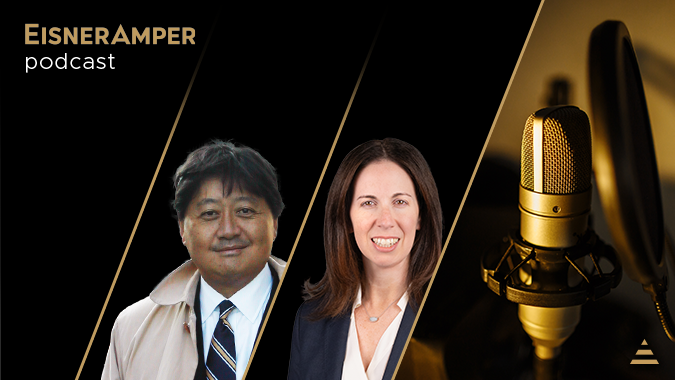
Podcasts
EisnerAmper podcasts bring you “the sound of business.”
Choose from dozens of channels featuring nationally recognized experts discussing key issues in real estate, venture capital, technology, family businesses, taxation and a host of others. Listen anytime, anywhere to get the latest information you need to help take your business or personal finances to the next level.
Latest Episodes
Featured Channel
Engaging Alternatives Spotlight
Receive the latest business insights, analysis, and perspectives from EisnerAmper professionals.



